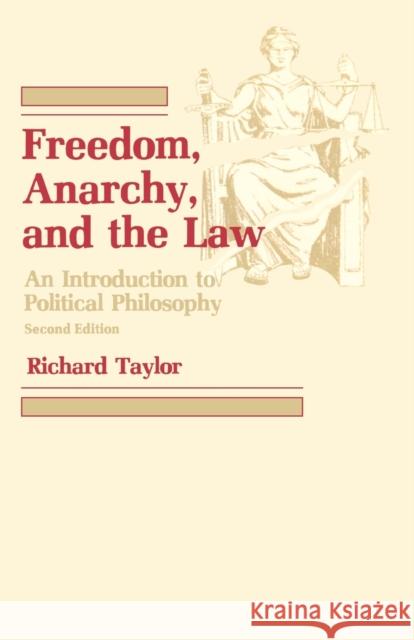Freedom Anarchy and the Law » książka
Freedom Anarchy and the Law
ISBN-13: 9780879751760 / Angielski / Miękka / 1982 / 144 str.
What is the purpose and justification of government? Upon what grounds is a regime considered legitimate? These perennial questions take on added significance at a time when legislative paternalism produces regulations which conflict with individual freedom of choice; special interest groups demand not only to be heard but to have their ideals given the force of law; and when there exists a clear and present danger that the actions of government may threaten the very persons it was designed to protect.
Richard Taylor argues that we must find "the role of government which is least incompatible with freedom and at the same time adequate to the basic needs of protection." Of course, many questions arise when pursuing this goal. What principle(s) should guide us in our quest? Recognizing that government is a coercive force, what restrictions could be placed upon the power of the state without rendering it impotent? Can individual freedom of expression be conciled with the actions of social groups which seek to impose their will on others? Should government's power be used to protect individuals from the consequences of their own freely chosen actions, especially when these consequences impact only upon the individuals themselves? What is the appropriate scope and range of the government's protective powers; to what lengths may a political regime go to protect its citizenry?
Professor Taylor confronts these complex questions with clarity, candor and conviction. His analytic mind slices through tangled issues to expose the core of each problem. He argues forcefully for the position that effective government is minimal government. The primary function of political regimes should be to protect citizens from one another and from outside enemies. Beyond this basic role each additional exercise of the state's coercive power must be carefully scrutinized.











